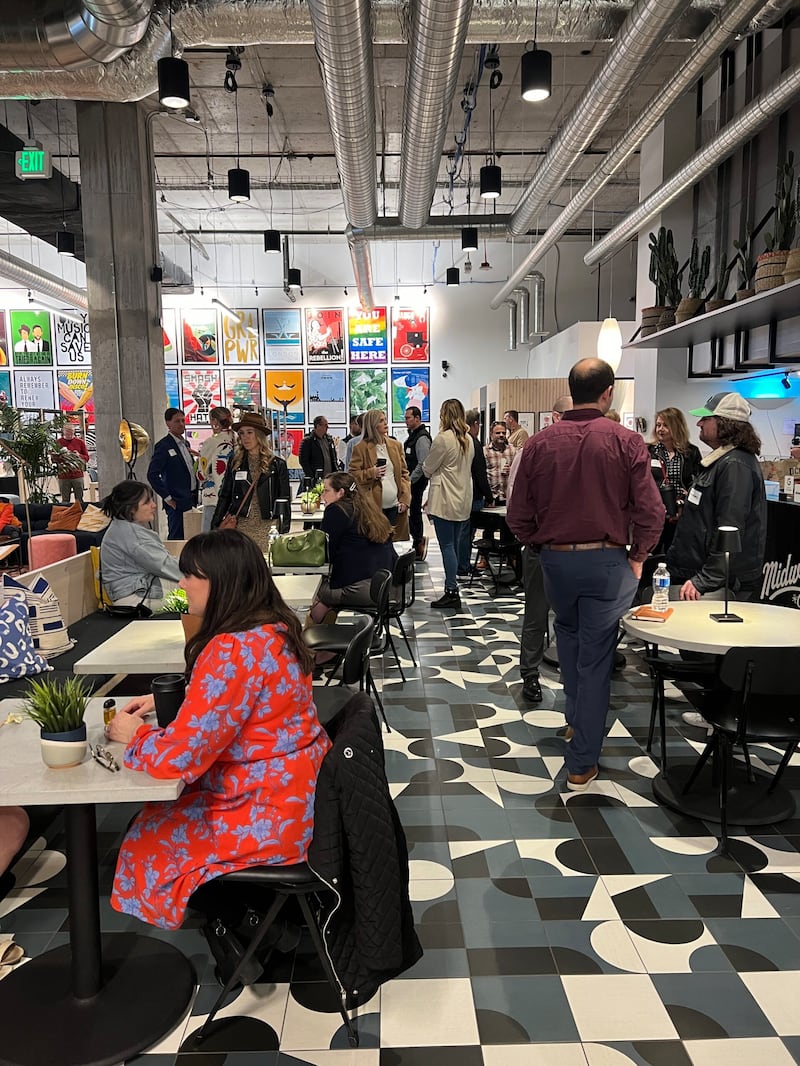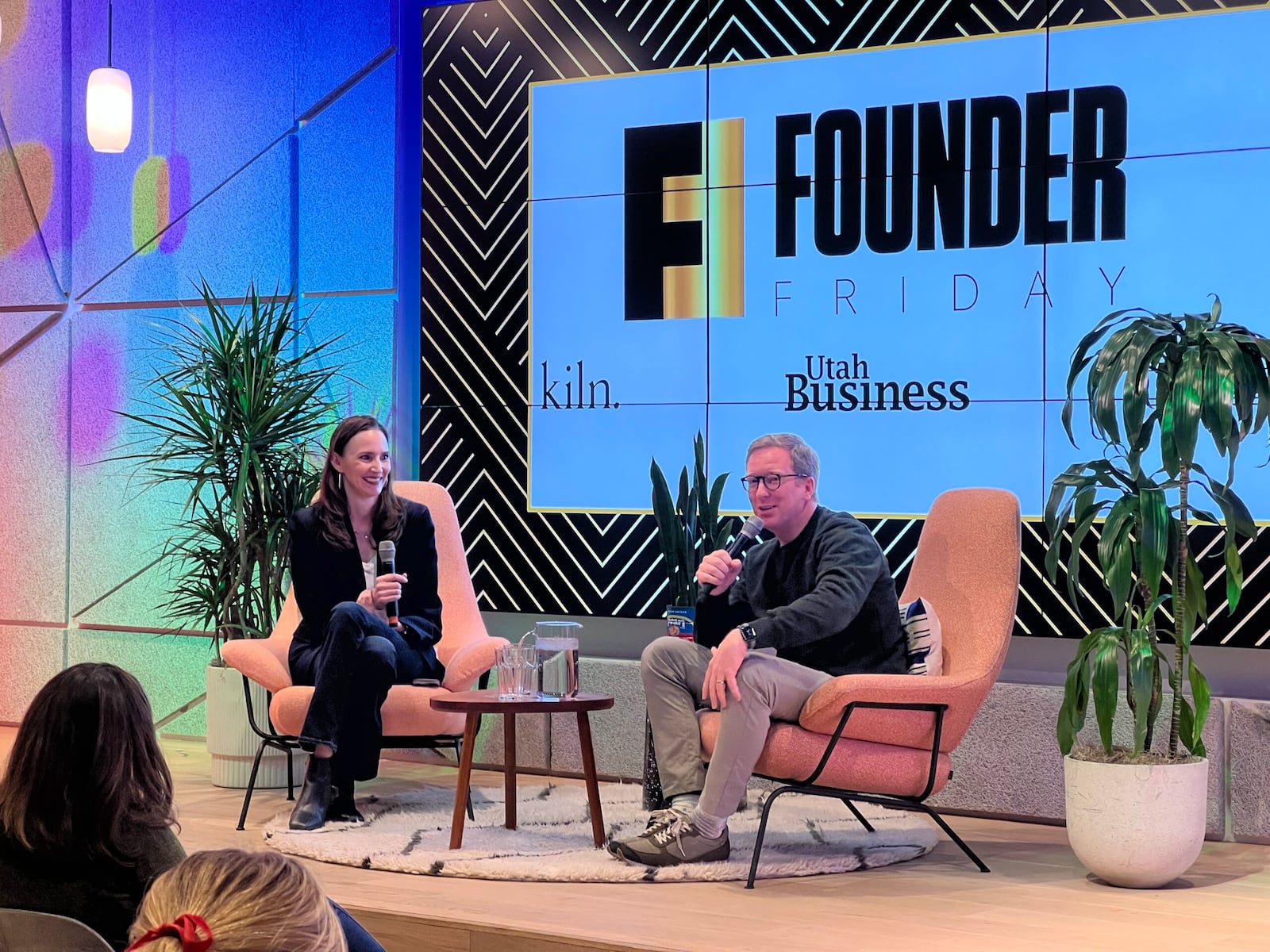This story appears in the March issue of Utah Business. Subscribe here.
Once a month, Utah Business hosts Founder Friday, a free event sponsored by BONCO that showcases the wisdom of Utah-based founders. In February, Kiln hosted the conversation between Utah Business Editor-in-Chief Melanie Jones and Kiln co-founder Arian Lewis. Here are a few takeaways from the event.
Enhance the intangible
When I walk up to the Salt Lake Kiln location each month for Founder Friday, I can’t help but grin. Utah Business hosts events all over Utah, but Kiln locations are a favorite. The staff: friendly and fashionable. The decor: custom, quirky, inclusive. The in-house coffee shop: a savior. On the extended tour of the space, the magic continues.
But Kiln’s spark isn’t just thanks to the in-house coffee shop and a group of attentive employees. Early in his career, Lewis says he noticed how intangible aspects of a space could easily enhance real estate value. From his garage spaceship simulator—he says you could sleep in it—to housing for “active adults,” the old need for “location, location, location” was replaced by something new.
“I have never felt like Kiln is all about the physical space. I love it when somebody says, ‘There’s just an energy. I feel something good when I’m there,’” Lewis says. “[It’s] about human interaction, creativity and authenticity. It’s about people being able to come be their best selves.”
Designated days
Does returning to the office mean giving up afternoon work-call walks, time around furry family members, easily accessed food and judgment-free breaks? It shouldn’t.
Lewis recommends considering lifestyle when bringing employees back to work. “When a company focuses on how they’re going to elevate the quality of somebody’s life while they’re at work—where their creativity can be expressed, where they can feel a sense of belonging with their team—that’s what they want.”
Specifically, Lewis warns against poorly coordinated return-to-work mandates. If employees stagger days in the office, there is no sense of belonging and no improved collaboration or communication. It fails.
Culture, culture, culture
“The culture is the company, and the company is the culture.”
“Culture is the driving force behind all the economic things that come out of the company.”
“Your beliefs power you through each stage of growth.”
“The success of this company came down to the resilience of our team.”
It’s hard to believe, but Kiln didn’t have a set of written values until they hit their first crisis. Over the years, many of the values have morphed, but one remains consistent. “People genuinely care,” Lewis says.


